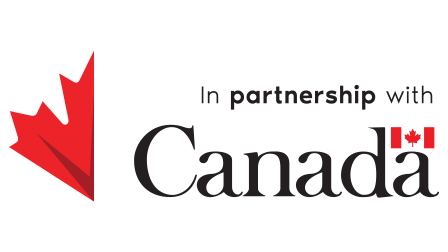FERMA: Femmes Résilientes au Moyen-Atlas
Using an integrated approach to forest ecosystem management, the FERMA project will work with twenty-five women's cooperatives in the Khénifra National Park region of Morocco, supporting their resilience in the face of climate change.
The Femmes Résilientes au Moyen-Atlas (FERMA) project will promote the use of Nature-Based Infrastructure (NBI), which produces ecosystem services, benefiting 3000 people in the Khénifra National Park. Known as the 'water tower' of Morocco, the park is situated in the Middle Atlas Mountains, which feed the Oued Oum-Er-Rbia and Oued Sebou rivers, essential water sources that the country's agriculture depends on.
FERMA will foster an integrated approach to cedar ecosystem management, recognizing the key role of local communities in conserving forest biodiversity and maintaining environmental climate change adaptation services, particularly for women. Through community engagement, FERMA aims to strengthen the key role played by indigenous peoples, especially women and young women, in the management of natural resources and biodiversity conservation.
Increasing climate resilience in the region is a key goal of the project. The Middle Atlas Mountains region has been strongly impacted by the effects of climate change: rising temperatures, droughts and desertification. Without adequate protection and restoration measures, a 45% loss of Moroccan forests is envisaged by 2050.
Similarly, FERMA aims to protect this highly biodiverse region, home to more than 24,000 animal and 7,000 plant species. Under threat from climate change, nearly 1200 of these species are listed on the IUCN Red List, due to displacement from increasingly hot temperatures and dry land. Studies also suggest that around 20% of flora and fauna could disappear by 2050, if conservation measures are not implemented. The overall cost of climate-change related biodiversity loss is now estimated at more than USD 300 million, with the potential to reach more than USD 2 billion by 2030.
The project was conceived as a direct support to Agence Nationale des Eaux et Forêts (ANEF) Forests Strategy 2020-2030 and the Khénifra National Park Management and Development Plan and a contribution to the strategic objectives of the National Strategic Adaptation Plan 2020-2030 and Morocco’s National Biodiversity Strategy and Action Plan. The initiative also hopes to strengthen the management standards and governance of the Khénifra National Park, in order to promote its integration into the Green List of Protected Areas of the International Union for Conservation of Nature (IUCN), alongside ongoing programs in the Atlas Cedar Biosphere Reserve, in the Ifrane and Toubkal National Parks, also focused on the conservation of cedars in the Middle Atlas.
SOCODEVI will lead the project, with partners including the International Institute for Sustainable Development, IUCN and Ostrom Climate Solutions.
Project team

Benjamin Simmons
Director, Sustainable Infrastructure

David Uzsoki
Lead, Sustainable Finance

Liesbeth Casier
Lead, Public Procurement and Sustainable Infrastructure and Coordinator of the NBI Global Resource Centre

Edoardo Carlucci
Policy Advisor I

Henri Contor
System Dynamics Analyst

Becca Challis
Communications Officer
You might also be interested in
The Nature-Based Infrastructure Global Resource Centre
The leading global hub for nature-based infrastructure (NBI). Together, we can help build a better, fairer, and more sustainable future through NBI projects.
NATALIE - Nature-based Solutions to Enhance Resilience to Climate Change
NATALIE focuses on advancing ecosystem-based adaptation in Europe, combined with climate-resilient development pathways, developing impactful nature-based solutions (NbS) to accelerate and mainstream the adoption of NbS for climate change resilience.
Natur'ELLES
This project aims to improve mangrove protection through an ecosystem approach, using nature-based solutions to benefit 8,000 people, particularly women, in the Sine Saloum and Casamance deltas in southern Senegal.
Using Systemic Approaches and Simulation to Support Transformation Toward Sustainable Mobility
This project aims to drive investments under post-pandemic recovery plans and development strategies towards transformation in the mobility and transport sector.

